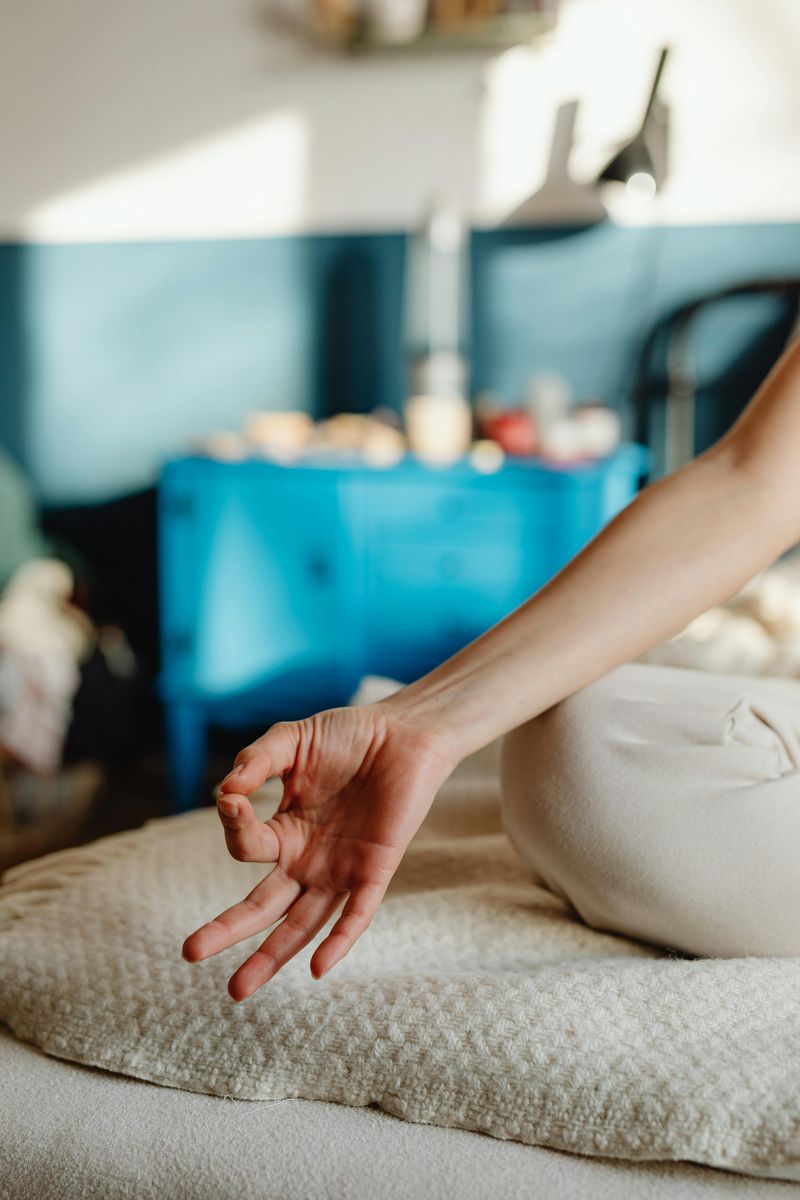13 Micro-Healing Habits to Nurture Yourself Each Day

Life can feel like a whirlwind sometimes, leaving little room for self-care. But taking care of yourself doesn’t need to involve expensive spa days or time-consuming rituals. Small acts of kindness toward yourself, practiced daily, can make a huge difference in your overall well-being. These tiny habits take just minutes but can help you feel more balanced, peaceful, and happy throughout your busy days.
1. Morning Sunshine Moments

First thing in the morning, step into the sunlight—even for a minute. That small dose of natural light helps wake your brain and regulate your body’s internal rhythm.
The morning light energizes you naturally without caffeine. Many people find this habit improves their mood throughout the day and helps them sleep better at night.
Try combining this with three deep breaths while feeling the warmth on your skin. Even on cloudy days, natural morning light is much brighter than indoor lighting and provides similar benefits.
2. Two-Minute Breathing Reset

Pause whatever you’re doing and focus only on your breath for two minutes. Count slowly as you breathe in for four counts, hold for two, then exhale for six. This pattern naturally calms your nervous system when stress hits.
Your body responds to this breathing pattern by lowering stress hormones. The beauty of this practice is that no one around you even needs to know you’re doing it.
Try setting a gentle reminder on your phone to prompt these breathing moments three times daily. Regular practice strengthens your ability to stay calm during challenging situations.
3. Grateful Heart Notes

Each night, take a moment to write down three things you’re grateful for. Keeping a notepad by your bed makes it easy—and studies show it can significantly lift your overall happiness.
The key is being specific rather than general. Instead of “I’m grateful for my friend,” try “I’m grateful for Lisa’s funny text that made me laugh today.”
Looking for bright spots trains your brain to notice positive things throughout your day. Many people report feeling more optimistic after just one week of this practice, and it takes less than two minutes each night.
4. Water First Policy

Before coffee, before emails—drink a full glass of water. After hours of sleep, your body is dehydrated, and this simple habit wakes up your system and clears out overnight toxins.
Keep a glass or bottle by your bed so it’s the first thing you see. Many headaches, energy slumps, and mood dips are actually signs of mild dehydration that this habit helps prevent.
Some people enjoy adding a squeeze of lemon for flavor and extra benefits. The ritual itself becomes a moment of self-care – a way of telling yourself that your basic needs matter before the day’s demands begin.
5. Tech-Free Transitions

Delay your scroll by 10 minutes each morning. That short window gives your brain time to wake up without being flooded by notifications and noise.
Use these precious minutes for yourself instead. Stretch, look out the window, or simply lie in bed noticing how your body feels. The emails and notifications will still be there when you’re ready.
Many successful people credit this habit with improved focus and reduced anxiety. Your brain needs this transition time between sleep and activity. The same principle works well before bedtime too – try disconnecting from screens 10 minutes before sleep.
6. Three-Minute Nature Connection

Find something natural – even a houseplant or the sky through a window – and really look at it for three minutes. Notice the colors, patterns, textures, and any movement.
This micro-habit activates the parasympathetic nervous system, creating a natural calming effect. Scientists call this “soft fascination” – when nature captures your attention gently without demanding mental effort.
You might notice your breathing naturally slows during these moments. Research shows even brief nature connections can lower blood pressure and stress hormones while improving mood. Try this during lunch breaks or whenever you feel overwhelmed.
7. Tension Scan Release

In just a minute and a half, you can reset. Do a slow body scan, and notice where you’re holding tension—your jaw, shoulders, or hands are common culprits we rarely catch.
When you find a tense area, gently tighten it more for a few seconds, then completely release. This deliberate contrast helps your brain recognize the difference between tension and relaxation.
Physical tension often reflects mental stress, creating a harmful cycle. Breaking this pattern several times daily prevents pain from building up. Regular body scans also improve your mind-body connection, making you more aware of stress signals before they become problems.
8. Single-Task Tea Ritual

Prepare a cup of tea or coffee and do absolutely nothing else while drinking it. No phone, no TV, no reading – just be present with your beverage for five minutes.
Notice the warmth of the cup, the aroma, the taste, and how it feels as you swallow. This simple practice is mindfulness in action, training your brain to fully experience the present moment.
Most people live on autopilot, missing countless small pleasures throughout their day. This ritual creates a pocket of calm awareness that can expand into other areas of life. The beverage itself doesn’t matter – it’s the deliberate presence that heals.
9. Five-Finger Gratitude Touch

Touch each finger on one hand with your opposite thumb while naming something you’re grateful for. This portable practice can be done anywhere – during a commute, in a meeting, or while waiting in line.
The physical touch component activates different parts of your brain than just thinking about gratitude. Many people find this especially helpful during anxious moments or when overwhelmed by negative thoughts.
Kids love this technique too, making it perfect for teaching emotional regulation. The simplicity makes it easy to remember, while the physical component grounds you in your body during stressful times. No one around you even needs to know you’re practicing it.
10. Doorway Mindfulness Pauses

Let every doorway become a cue to pause. As you pass through, take a single conscious breath and check in with how you’re feeling.
Doorways naturally represent transitions between spaces and activities. This micro-habit helps prevent stress from following you from one part of your day to another.
The beauty is how it naturally integrates into your existing routine without requiring extra time. People report this habit helps them leave work stress at work and be more present at home. It’s particularly effective because doorways are everywhere, offering multiple chances to reset throughout your day.
11. Hand-on-Heart Comfort

Place your hand over your heart and speak to yourself with the kindness you’d offer a good friend. This simple gesture activates your body’s self-soothing response during difficult moments.
The gentle pressure and warmth trigger the release of oxytocin, known as the “love hormone.” Combining this with kind self-talk counteracts your inner critic and builds emotional resilience.
Most people speak to themselves more harshly than they’d ever speak to someone they care about. This practice helps break that pattern. Try phrases like “This is hard right now, but I’m doing my best” or “I’m here for you” while maintaining the heart connection.
12. Sky Gazing Moments

Take 30 seconds to look up at the sky, whether starry night or blue day. The vastness naturally shifts perspective, making daily worries seem smaller against the backdrop of something so immense.
Humans evolved under open skies, yet modern life keeps us indoors and looking down at screens. This brief habit reconnects you with something primal and expansive.
Cloud-watching encourages a playful, childlike state that many adults rarely experience. Night sky gazing often triggers feelings of awe and wonder. Both states have been linked to improved mental health and reduced stress in research studies.
13. Bedtime Body Thank-You

Before sleep, mentally thank three parts of your body for their service today. Maybe your feet for carrying you, your eyes for seeing beauty, or your hands for their work.
Most people focus on perceived flaws rather than appreciating what their body does for them. This practice reverses that negative pattern and builds a healthier relationship with your physical self.
The body-mind connection works both ways – your thoughts affect your physical health, and gratitude has measurable benefits. Many report this practice improves sleep quality too. By acknowledging different body parts each night, you gradually develop appreciation for your entire physical being.

Comments
Loading…